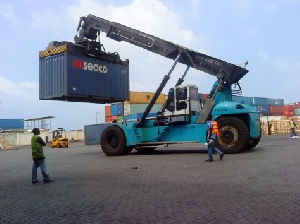The Ghana Standards Authority (GSA) will in September begin mandatory certification of both imported and locally manufactured goods classified as “high-risk”.
Food products, electrical cables, building materials, arms and a host of others classified as high-risk are to undergo the process, which includes the GSA going to look at the manufacturing process, facilities, equipment, and human resources of companies.
“At the moment, what we are doing is just inspection at the ports; and we realise it is not adequate, so we have to introduce a certification scheme,” Mustapha Tawiah Kumah, Director of the Certification Division of the GSA, told the B&FT.
“And because we are doing this for imports, we also have to do it for locally manufactured ones. It means the scheme will cover both imports and locally manufactured goods. So you have to go through inspection, taking samples to be looked at by a committee to make sure that the product satisfies all the requirements of the scheme; and then you are allowed to use our mark of conformity.
"So before the import arrives at the point of entry, it will bear our mark so that it will make it even easier for us to do the inspection -- and we would not need to take samples to test again at the port,” he added.
While industry people welcome the move, the local food and beverages sector is not happy that the GSA is going to subject it to tests it goes through under the Food and Drugs Authority. The sector says the move will constitute double regulation, as well as double charges, since the GSA also charges fees for such services.
At a meeting between members of the Association of Ghana Industries and the regulatory bodies last week, representatives of the food sector asked that they be excluded from the GSA certification.
Already, there is a turf war between the GSA and the FDA over who should do what with regard to regulation of products in the country.
According to Deputy CEO of the FDA John Odame-Darkwah, memoranda that spell out the roles of the two bodies are not being adhered to, leading to functional overlaps.
The GSA has broad groupings of goods it classifies as high-risk, including pharmaceuticals, LPG cylinders and accessories, toys, chemical and allied products, petroleum products, pyrotechnic products and motor vehicle batteries.
Others are alcoholic and non-alcoholic products, African textile prints, machetes/cutlasses, vehicle spare-parts and industrial machinery.
Business News of Monday, 5 May 2014
Source: B&FT

















